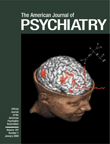This book was originally conceived by Sidney Weissman and Harold Eist as a volume that would honor the outstanding work of Melvin Sabshin as Medical Director of APA and founding Chairman of the Board of the American Psychiatric Press. The book that evolved, with the active collaboration of Dr. Sabshin, is a wonderful review of the field of psychiatry, with projected changes for the year 2000 and beyond. The editors have organized the book in a very logical fashion. Section 1 focuses on the disciplines of psychiatry, section 2 discusses the practice of psychiatry, section 3 discusses the psychiatric workforce and its education, and section 4 focuses on the future.
In the first section, Joseph Coyle’s chapter on neuroscience and Steven Hyman’s on genetics and molecular biology are marvelous summaries of exciting research advances occurring in both of these areas. Psychiatrists not particularly well versed in these topics should find both of these chapters to be quite illuminating. Dr. Weissman provides a wonderful overview of developments in psychoanalysis and psychiatric diagnosis in two separate chapters. His chapter on psychoanalysis summarizes various models of the mind and also presents core psychoanalytic concepts that he feels will influence the practice of psychotherapy in the new millennium. In his other chapter, Dr. Weissman discusses both the strengths and weaknesses of the DSM nomenclature system, stating that additional axes should be included that address motivation and biological factors. Joseph Flaherty and Boris Astrachan, both noted community psychiatrists, discuss how social psychiatry may play an important role in addressing such issues as violence, substance abuse, and diminished family relationships. Daniel Offer, who has co-authored several books with Dr. Sabshin on normality, provides a scholarly overview of why the study of normality by psychiatrists will be important in the future. To end this section, Lois Flaherty reviews the growth of psychiatry as a specialty and how developments in the neurosciences and psychopharmacology have affected its development.
The second section, on the practice of psychiatry, includes equally fine chapters written by the top psychiatrists in the field: John McIntyre, Deborah Zarin, and Harold Pincus on practice guidelines in psychiatry; Glen Gabbard on the psychiatrist as psychotherapist; Alan Schatzberg on psychopharmacology; Mark Levy on models for selecting psychotherapy or pharmacotherapy; Donald Klein on collaborative controlled studies of pharmacotherapy and psychotherapy; Steven Sharfstein on financing mental health care; and Jeremy Lazarus on the ethical conduct of the psychiatrist. All of the authors provide fresh insights and thoughtful formulations of future issues involving their respective areas.
Section 3, which includes only three chapters, is equally well written. James Scully discusses the factors that will influence the demand for psychiatrists and the federal government’s attempts to reduce subspecialization. Richard Balon, Rodrigo Muñoz, and Nyapati Rao emphasize the important contributions of international medical graduates to the development of American psychiatry. Finally, Carolyn Robinowitz summarizes how psychiatrists can maintain their level of knowledge and skill in psychiatric practice.
The final section, which focuses on the future, includes two outstanding chapters: one written by Steven Mirin, APA Medical Director, on predictions about the financing and delivery of psychiatric care, and a chapter by Dr. Sabshin on his assessment of how the field will adapt, grow, and flourish in the twenty-first century.
All in all, I found Psychiatry in the New Millennium to be an outstanding overview of the entire field. The editors should be commended for an outstanding contribution to the psychiatric literature. The chapters are well written and have been well edited by these senior, experienced educators. The style of most of the chapters is such that readers will find themselves engrossed in a concise update of a selected field in psychiatry. The authors seem to be talking directly to their colleagues in order to provide a condensation of all their knowledge and experience in assessing the past and predicting the future.
I found that Psychiatry in the New Millennium provided a wonderful foundation for psychiatry residents to learn about the field they are entering and to gain some insight to where psychiatry is going. I also highly recommend this book to practicing psychiatrists. The authors are outstanding, and the editors have succeeded in a superlative fashion in providing a wealth of information in a concisely written manner. I look forward to returning to this book after a period of time to see how accurate some of the predictions of the authors were. This book is a fitting tribute to the invaluable contributions of Dr. Sabshin in guiding the field of psychiatry during the last two decades and up to the new millennium.

